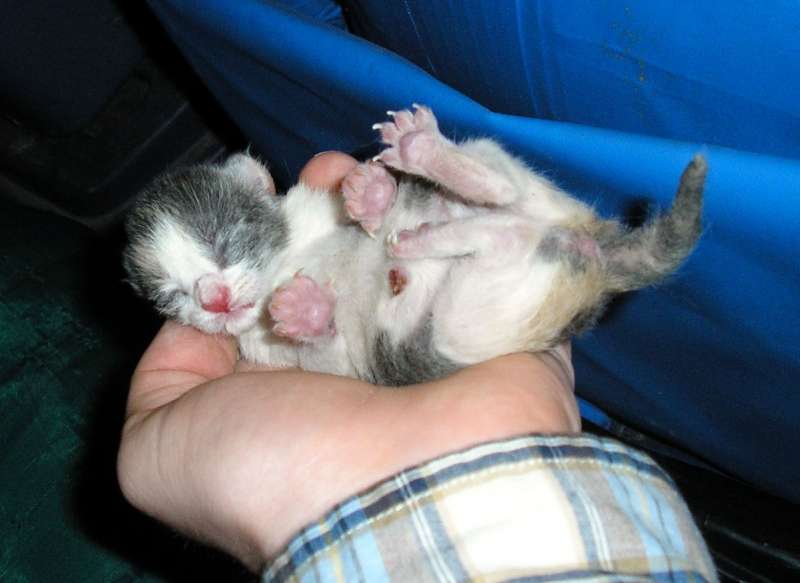Updated: August 23, 2023 by CanCat Eat
Caring for newborn kittens is a serious responsibility and one that you should prepare carefully for. Kittens are considered as newborn from the time of their birth until around four weeks, during which time the kittens will open their eyes, start walking, and be weaned from their mother. If you’re working with the mother cat to provide the best care of the kittens, it would be easier for you, but if you are caring for an orphaned batch of kittens or a litter that’s been rejected by the mother, it will take a lot more effort and time on your part to provide the kind of care that the kittens needs.
Contents
Cat Health Tips to Keep your Newborns Healthy
There are generally four areas that you need to consider when taking care of newborn kittens: their bedding, their food and nutrition, their grooming, and their overall health and wellness. Here are some cat health tips for kittens for each of these areas:
Bedding
Newborn kittens are blind, unable to move around, and unable to regulate their own body temperature. This is why you might notice that the kittens tend to snuggle up close to the mother or to each other: they need the proximity to increase their body heat. If the mother is still present, she will try to look for a dark, dry, and warm place to nurse and care for her kittens, otherwise, you will need to provide it for them. Place them in a box with a layer of soft materials such as fleece or cotton that will keep them safe and warm, but will still allow air to circulate inside the box. Place the box somewhere that won’t be disturbed by other people or pets in your home, such as inside a quiet room or even under the bed.
Food and Nutrition
The nutrition and food that newborn kittens receive during the first four weeks of their lives are critical to their growth and development. Generally, mother cats are able to produce enough milk to nurse their kitten through this stage. One of the most important things that your kittens need to consume is the colostrum, the first milk that the mother produces. Colostrum is densely packed with nutrients, fat, and vitamins, as well as trace elements of any vaccinations that the mother has. This will pass the same protection to the kittens.
If there is no mother cat available to feed the kittens, you must step in. You should get a special newborn formula that’s designed for kittens; NEVER use cow’s milk because it can upset the kitten’s stomach. You must feed the kittens through a bottle or a syringe with a nipple. Lay the kitten on its side and allow it to latch on to the nipple to suckle at the milk. Never feed the kitten on its back as it can cause choking.
You may read: Can Cats Eat Shrimp
Eliminating and Grooming
Another important element of taking care of newborn kittens is their grooming and helping them eliminate after feeding. Kittens cannot eliminate waste on their own during the first few weeks of life, so you might notice a mother cat licking at their kitten’s behind and under the tail to stimulate them to urinate and defecate. You can mimic this by getting a warm wet cloth and gently wiping the area in one gentle motion. Once the kitten urinates and poops, you should immediately clean the area.
Mother cats will also groom their kittens with their tongue to keep them clean and fresh. You can simulate this by using a rough cloth dipped in warm water and gently rubbing down the kittens to remove any dirt on their coats. Always make sure that the kittens are completely dry after wiping them down to prevent them from getting cold. Always replace the kittens close to each other after grooming so that they can continue to rest near their littermates.
Overall Health and Wellness
By providing the right kind of environment, kitten replacement milk, and grooming, you can actually raise a litter of orphaned or abandoned kittens as well as any mother cat. However, there are times when even the best cat health tips can’t prevent something going wrong with your kitten’s health. If this is the case, you should immediately bring the whole litter to the vet, and not just the kitten who is showing any signs that there is something wrong. A vet will be able to look over the whole litter and do the necessary tests to see if there is a problem. They can also prescribe any supplemental vitamins that you might need to boost the health of the kittens.
Kristen is a cat parent. Love to keep my cats happy always and playful. Also, It became my passion to help another cat owner with caring tips for their cats and kittens. Stay tuned with my personal blog to know more caring tips, review of cat food and feeding guides. I’d love to know about your cat. If you something to share with about your cat. I will be happy to read.
